
![]()
![]()
![]()
![]()
Trigger warning: Discussion of eating disorders.
Sometimes I get irritated with all of the special focus days/weeks/months that inundate my calendar. I?ve written about this before in posts about Love Your Body Day, International No Diet Day, and Fat Talk Free Week, etc. I think the source of my irritation comes from wishing there was no need to continue to wipe out eating disorders (EDs), fight for a cure for breast cancer, or acknowledge that people have the right to be whatever size they are without being bullied and stigmatized.? In a perfect world the celebrations on the calendar would not need to be reminders to fight the fight; but I understand the need to call attention to certain causes and if the increase of these days/weeks/and months is any indication of progress, then we are making a great deal of progress.
So in the interest of keeping you all up to date on upcoming dates I?d like to share the following thoughts with you.
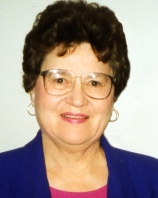
Francie Berg: Healthy Weight Week
January 20-26 was the 20th anniversary of?Healthy Weight Week. While there have been some issues by some folks about the name of the week because it sounds as if the focus is still weight-centric, when Healthy Weight Week was first established, it was a radical concept to reject dieting and accept the notion that people of different sizes and different weights could still be healthy. I had the pleasure of interviewing Francie Berg, the Chairwoman of Healthy Weight Week and author of Women Afraid to Eat. She shared some thoughts about what has evolved over the past 20 years.
If you would like to read that interview, click here.
February is Eating Disorders Awareness Month with February 24 through March 2 being National Eating Disorders Awareness Week. NEDAwareness Week now has its own website to make finding resources, activity guides, events and more, easier than ever! Visit to see how you can be a part of the largest outreach effort on EDs in the nation.
The increase of EDs among men is unfortunately increasing rapidly in our country. The National Association for Males with Eating Disorders (NAMED) is conducting a college campaign, in which fliers and brochures will be distributed to colleges to encourage male students with eating disorders to seek treatment, and promote NAMED as a resource. To sign up your college or make a donation toward this project, email Chris@NAMEDinc.org.??
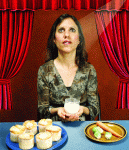
Judy Freed, Food Fight
If you are fortunate enough to live in the Philadelphia area, you may want to get tickets to for? FOOD FIGHT: A Solo Performance About Eating Disorders written and performed by Judy Freed. As a psychotherapist and performance artist, Freed takes the audience on a deeply personal journey of recovery, followed by a post-performance discussion. A portion of every ticket sold will go directly to the American Anorexia and Bulimia Association (AABA) of Philadelphia the Moving Creations, Inc. project Girls on the Move at Germantown High School. The show is on February 2, 2013 at 5:00 p.m.
There is an indisputable connection between fat stigma, size discrimination, and the development of EDs. Most people who have an eating disorder started off by engaging in some form of dieting in order to shape their bodies into a smaller version to conform to the belief that thinner is better, healthier, more beautiful.
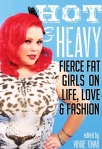
Fierce Fat Girls
One way that I will be acknowledging Eating Disorders Awareness Month is on February 13, at Pegasus Bookstore in Berkeley, California. Please join me and other contributing authors at?7 p.m. at 2349 Shattuck Avenue as we read our pieces from?Virgie Tovar?s new anthology, Hot & Heavy:? Fierce Fat Girls on Life, Love and Fashion. It seems perfectly congruent that the contributing authors will be reading about making peace with their bodies during NEDA month. To read more about the book click here.
And speaking of books, there is a new book coming out later this year called Fat Poets Speak II, edited by Frannie Zellman. I am honored to have one of my pieces included in this book and will share it at the end of this blog post. But more importantly, I had the opportunity to interview Ms. Zellman, who is also the author of FatLand, a novel published by Pearlsong Press, about the upcoming book.
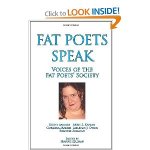
Fat Poets Speak I
Dr. Deah:? How did you first become involved in the Fat Acceptance movement?
Frannie Z:? I was always heavy, and yet I could walk my slimmer friends into the ground. I was also the most athletic of them. Somehow it always seemed off-kilter and at least faintly wrong when the doctors would tell me that I had to lose weight. And yet I tried, in several attempts, which always ended the same way?? with my gaining everything back that I lost on diets, and then some.
From a social justice and humanitarian standpoint, it seemed bizarre that fat people were treated unjustly and unequally and not given the same opportunities and medical care as slimmer people. As the daughter and granddaughter of Socialists (with a capital ?S?), I came from a family in which social justice issues were discussed at the dinner table nightly. And from a feminist perspective, it seemed highly suspicious that fat people, but especially fat women, were being told to starve themselves in the hopes that we would appear smaller and daintier than men.
My questions and suspicions found some answers in?Fat Pride by Marvin Groswirth (1971), although the book was less than generous to women in several sections. Making Peace with Food by Susan Kano (1989) nudged me further in the direction of Fat Acceptance. But it wasn?t until I happened to view an issue of Radiance? magazinie online (1998) that my confidence and belief in Fat Acceptance began to soar. Upon reading the poems in the first issue I viewed, I said two things to myself: a) these women believe as I do and b) I want to write poems that speak to Fat Acceptance and then, liberation.
That of course was another issue. As a poet, I?d felt all my life that my poems were somehow vaguely off-center, that I wasn?t speaking or writing from the heart, from the core of myself. When I read the poems in Radiance, I knew that what I needed to do was to write about myself as what I was and am?? a fat and proud woman. And that, more than anything else, sealed my identification as a Fat Acceptance believer.
Dr. Deah: ? How did you become involved with the Fat Poets? Society and become the editor of the anthologies Fat Poets Speak I and II?
Frannie Z:? In 2006, upon seeing the call for workshops and workshop leaders in National Association to Advance Fat Acceptance (NAAFA) online, I proposed a workshop in writing Fat Acceptance and liberation poetry with an emphasis on writing joyfully using images of ourselves as fat women. I think it was called ?Singing the Fat Self.? I was then duly asked if I wished to lead the workshop. I said that I would. After all, I thought, besides everything else, it would be a chance to use the skills garnered from my master?s in creative writing, and justify the hopes, such as they were, that my creative writing professors had once had in me.
At the 2006 convention, I met the poets in my workshop who would furnish the core of the Fat Poets? Society: Kathy Barron, Anne Kaplan, Corinna Makris, Lesleigh Owen (now Dr. Lesleigh Owen),? and Mary Worley, already a prominent figure in Fat Acceptance. We decided that we should start a Fat Poets? Society with the goal of producing a volume of poetry to be published. Although Mary had training in editing ? that?s what she does?? she felt that I would be more qualified, since my area was after all creative writing/poetry. So I edited, and contributed to, Fat Poets Speak: Voices of the Fat Poets? Society, the first volume of Fat Poets Speak. We met online through email. We then migrated to Facebook as we all established accounts there.
At the same time, I was writing what would turn out to be FatLand, my novel of a society and territory which has as its reason for existence the rights and equality of fat people. I first wrote it in installments in Marilyn Wann?s blog, just for fun. When I showed the results to a good friend of mine, who is also into Fat Acceptance, she said that she thought I should publish it. Pearlsong Press was the natural and inspiring choice for me and for the Fat Poets? Society, as well. CEO Peggy Elam is preeminent in publishing works that emphasize Fat Acceptance, and I knew that she would understand the objectives of the novel and of the Fat Poets anthology.
FatLand: A Novel and the first volume of Fat Poets Speak were both published in 2009.
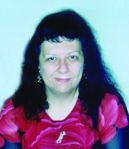
Frannie Zellman, Editor Fat Poets Speak and Author FatLand
Dr. Deah:? What made you decide to publish a second volume of Fat Poets Speak at this point?
Frannie Z:? Although we published the first volume in 2009, the poets involved in the Fat Poets? Society didn?t stop writing. Eileen Rosensteel, who had not been able to attend the workshop I gave in 2006, did indeed manage to get to the NAAFA Convention in 2007, when I didn?t, and attend a poetry writing workshop then. When I read her work, I was thrilled.
The Fat Poets? Society kept meeting online. I gave a workshop in writing fat fiction at the NAAFA Convention in 2008, while Dr. Lesleigh Owen, a ?charter? member of the Fat Poets? Society and a prolific contributor to the first volume of Fat Poets Speak, gave the workshop in writing fat poetry. Although we did give a workshop in writing Fat Poetry in 2009 at the Convention in Washington, DC, what I can only describe as life circumstances came into play then, and I was not able to attend any NAAFA Conventions afterward.
The circumstances which caused me not to be able to attend NAAFA Conventions in the three years after?? 2010-2012?? also impacted my writing and facilitation of the Fat Poets? Society. They started to ease in 2012. As I finally finished writing the second volume of FatLand, entitled FatLand; The Early Days, it was natural for me to start writing and giving more attention to poetry again, as well. And I knew that the poets involved in the Fat Poets? Society were still writing and would welcome an outlet for their poems. That was when I proposed to Peggy Elam at Pearlsong Press that a second volume of poems be published.
Fat Poets Speak II?? we have yet to finalize the complete title?? is slated to be published late in 2013.
Dr. Deah:? What changes have you seen in the societal attitudes towards fat people/size diversity in the time that has passed since the first book was published?
Frannie Z:? It seems to me that society in the USA has polarized so much more around the question of fat/size diversity and acceptance since 2009. There are more people who now accept or actively support the idea of Fat Acceptance, but there are also more people who are against it. There have been many wonderful books and anthologies that have come out in that period of time, including the Fat Studies Reader (ed. Esther Rothblum), with the entire field of Fat Studies now accepted as a scholarly area and pursuit. Fat fiction has burgeoned (have to give a shout out to my own favorite fat mystery books, by Lynne Murray, including (yum!) The Falstaff Vampire Files). The more books and writings on being fat and Fat Acceptance that emerge, the more legitimacy fat studies and fat poetry and fiction acquire. The more we write about being fat, the more our voices are heard, and the more strength and legitimacy we acquire as a group.
That said, there continue to be people, both well-meaning and not, who still haven?t gotten the word, who still feel that fat people (both children and adults) must be slimmed down to be accepted in and by society. Witness, unfortunately, the new Biggest Loser, which features fat kids being yelled at and bullied by slim and completely clueless trainers.
And yet Disney?s anti-fat section was shut down by the work of Fat Activists, the amazing Ragen Chastain prominent among them. Your own blog, Deah, is yet another example of the growth of Fat Acceptance, and that we are now reading and contributing to our own fat-positive media online. Every Fat Acceptance blog fuels more writing, which in turn, fuels acceptance and pride. The big change from the time of publication of the first volume of Fat Poets Speak, in 2009, is that Fat Acceptance has become a media force, with more outreach and more power behind it.
Dr. Deah:? Anything else you would like people to know about Fat Poets Speak?
Frannie Z: I realized as I was writing the above that the explosion in e-books and readers has fueled Fat Acceptance fiction and poetry and non-fiction, as well. What used to take days to acquire now takes minutes. (Yes, Fat Poets Speak is available on Kindle.)
The oh-so-wrong complex of ideas that caused Big Medicine and Big Pharmacy to collude in promoting the idea of fat people as sick and not worthy of equality is also starting to crumble as more and more fudged results of studies come to light. There is no magic pill to combat fat. But there is nothing wrong with being fat. What both volumes of Fat Poets Speak celebrate is that in spite of having been ostracized by a society that felt fat was wrong, we have found and find ways to live gloriously, happily, sadly and defiantly as fat poets and as fat people.
Dr. Deah:? Thank you so much Frannie Zellman for these important, informative and insightful answers.? Best of luck on your books as well! And if you are still in the mood to keep reading, here is the piece I wrote for Fat Poets Speak II: The Cure, or Dr. Seuss Meets Size Acceptance.? I hope you enjoy it!
Til next time,
Dr. Deah

Source: http://fiercefatties.com/2013/01/30/calendar-girl-and-fat-poets-dr-deah-interviews-frannie-zellman/
the tree of life movie academy award nominees 2012 2012 oscar nominations kyle williams florida debate rand paul mark kirk
No comments:
Post a Comment